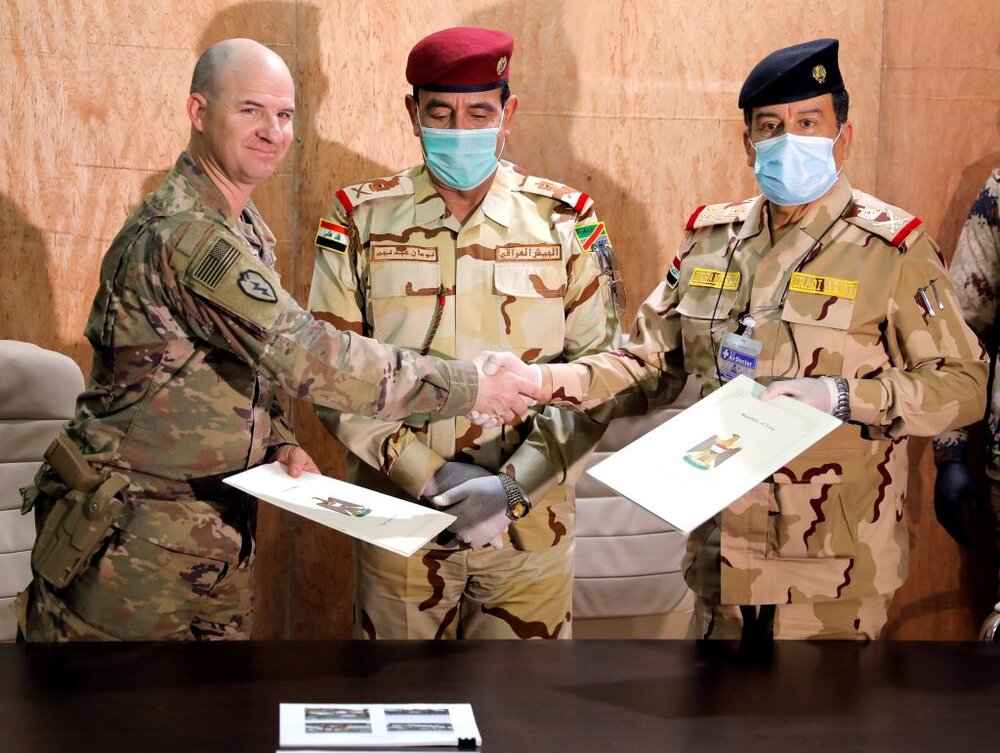TEHRAN — If forced to choose, Baghdad will choose Iran, not the United States, argues an Atlantic Council article.
“It is, therefore, not in U.S. interests to force Iraq to make such a choice,” read the article, which was published on April 23.
The following is an excerpt of the article:
A withdrawal of most U.S. military forces from Iraq seems likely this year as the Iraqi government seeks to maintain some sort of diplomatic and economic relationship with the United States without alienating its powerful neighbor Iran. How this withdrawal is managed will help determine future U.S. influence not only in Iraq but in the Middle East [West Asia] as a whole.
Iranian support for Prime Minister-designate Mustafa al-Kadhimi—who has had good relations with the United States—appears to be predicated on his agreeing to negotiate a new Status of Forces agreement (SFA) with Washington, which aims to remove the bulk of the several thousand U.S. troops still deployed in Iraq.
The Americans’ mission was ostensibly to prevent the resurgence of the Islamic State of Iraq and al-Sham (ISIS) and to train Iraqi armed forces. However, the U.S. jeopardized their continued presence in the country by breaching the terms of a 2008 SFA; they targeted Iran-backed Shia militias and the leader of Iran’s Quds Force, Qassem Soleimani, on Iraqi soil (on January 3 near Baghdad airport). The U.S. actions represented a significant escalation in the rules of the game—an unprecedented targeting of a senior Iranian official in a foreign country.
The attack near Baghdad, when Soleimani was on an official visit, put Iraq in an untenable position. Iraq cannot afford to alienate a powerful neighbor with which it shares a 1,400-kilometer border and which has deep relations with a variety of Iraqi groups. If forced to choose, Baghdad will choose Iran, not the United States. It is, therefore, not in U.S. interests to force Iraq to make such a choice.
While Tehran has long sought an exit of U.S. forces from Iraq, Iran-backed militias did not attack U.S. forces in Iraq while the U.S. remained in compliance with the 2015 nuclear deal. The situation deteriorated after the U.S. withdrew unilaterally from that deal in 2018 and sought to put a total embargo on Iran’s oil exports in 2019.
Also killed by the drone strike near Baghdad airport, were several Iraqis, including Abu Mahdi al-Muhandis, the leader of the Kataib Hezbollah militia and deputy commander of all of the Popular Mobilization Forces that had battled ISIS. The assassinations led the Iraqi parliament to pass a non-binding resolution expelling American forces.
Tensions abated somewhat after Tehran accidentally shot down a Ukrainian civilian airliner on January 8, mistaking it for a hostile U.S. missile. The outbreak of the coronavirus in Iran and its neighbors also took attention away from U.S.-Iran strains. However, a second spate of tit-for-tat attacks occurred in March, leading to the death of two more Americans and a British citizen, as well as three Iraqi soldiers, an Iraqi civilian, and several militia members. U.S. forces have now been withdrawn from three isolated outposts in Iraq and consolidated in the relatively safe Kurdish city of Erbil and at the al-Assad air base outside Baghdad. The United States also brought in Patriot missile batteries to defend these bases against militia rockets.
Ideally, the United States should re-examine its policy of “maximum pressure” toward Iran, which has not and will not achieve its stated goals.


No comments:
Post a Comment